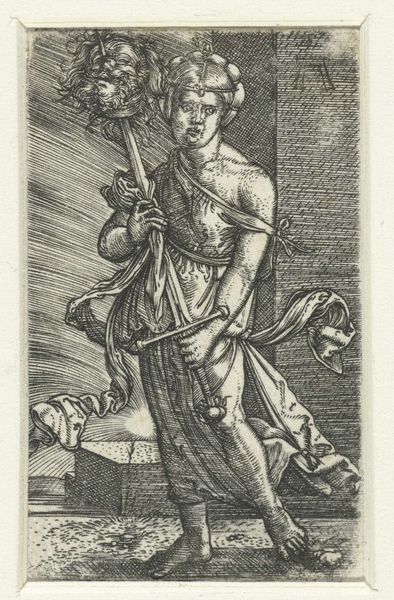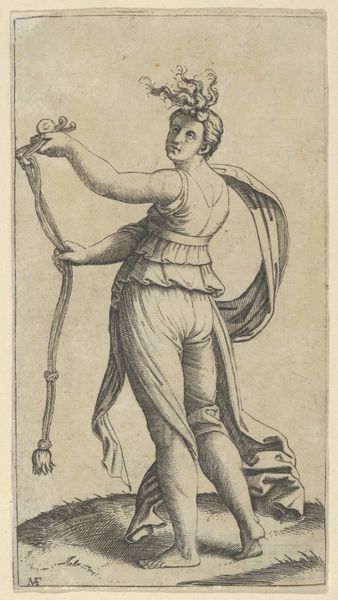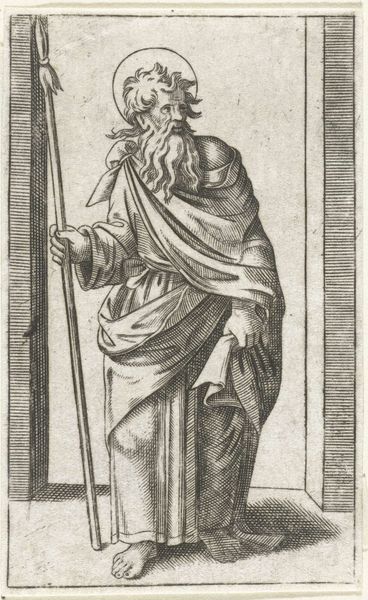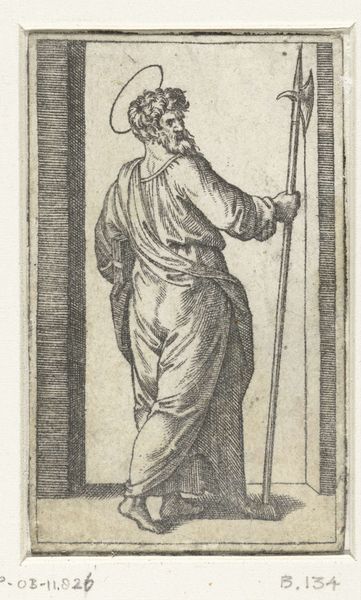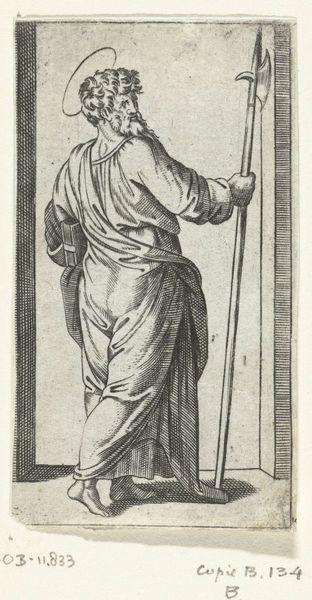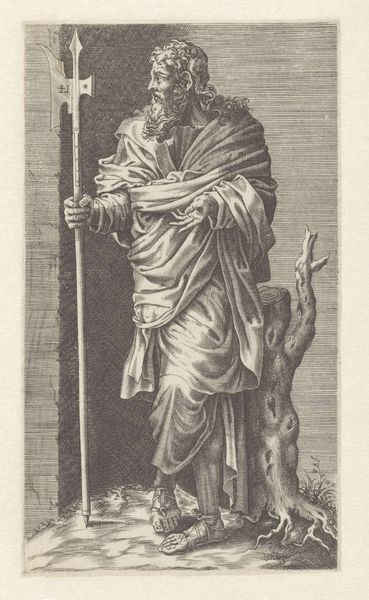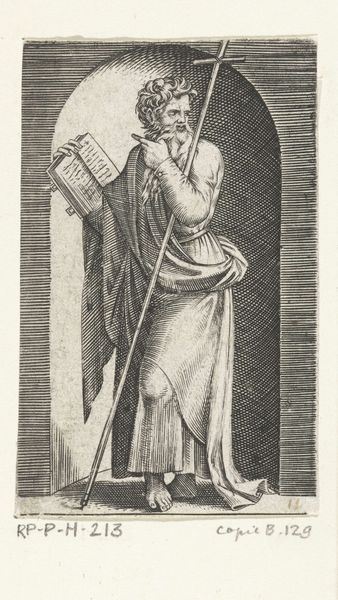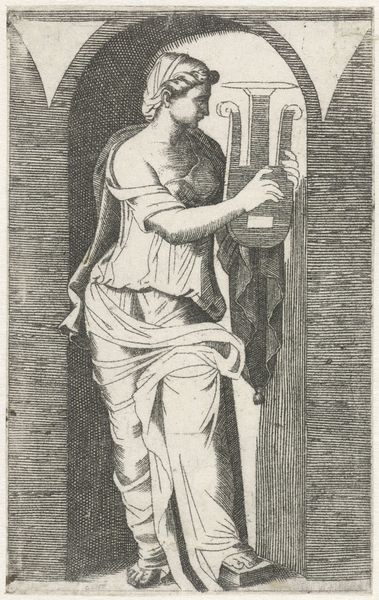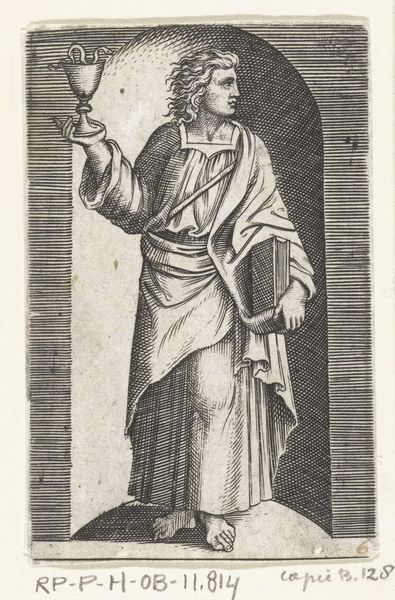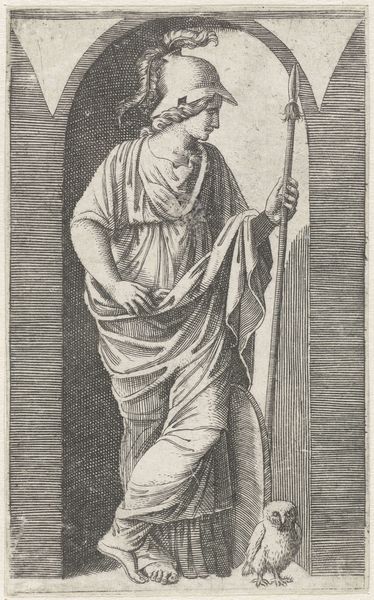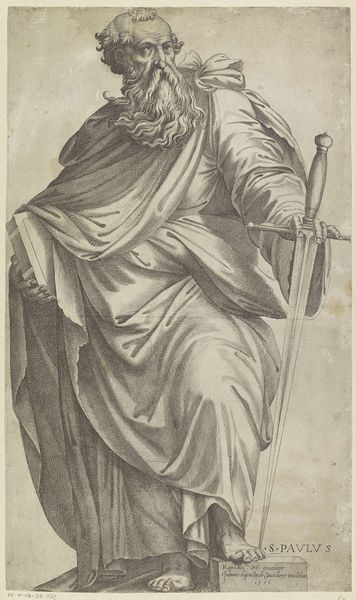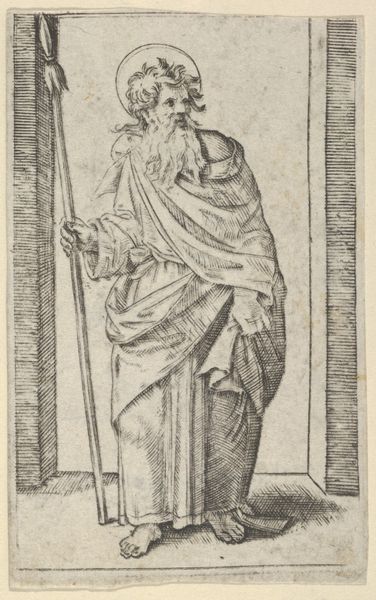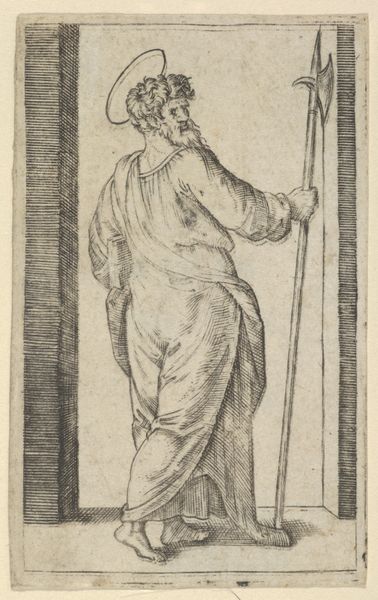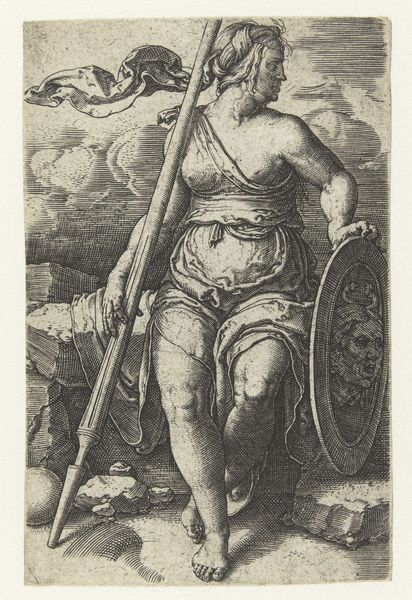
drawing, print, engraving
#
portrait
#
drawing
# print
#
figuration
#
portrait drawing
#
history-painting
#
northern-renaissance
#
engraving
Dimensions: Sheet: 2 1/2 × 1 9/16 in. (6.4 × 4 cm)
Copyright: Public Domain
Editor: This is Albrecht Altdorfer’s “Judith with the Head of Holofernes,” an engraving likely created sometime between 1475 and 1538, and currently held at the Metropolitan Museum of Art. There’s something so unsettling, yet powerful, in the way Judith carries the head. What strikes you most about this image? Curator: The potent symbols. The head itself, of course, a graphic emblem of decapitation as just retribution, but also look at the staff she holds. It resembles a scepter, yet it's a tool of violence, crowned not with power but… consequence. What do you make of her gaze? Editor: She doesn't look triumphant. There’s a heaviness, an awareness of the gravity of her actions. Almost a burden? Curator: Precisely! Judith isn’t just a woman; she's a vessel for complex moral and societal anxieties. Altdorfer captures a moment brimming with cultural weight. Consider how this image resonates with ideas of female agency and divinely sanctioned violence within its historical context. Editor: So the symbols aren't just visual, they're loaded with centuries of cultural interpretation? It’s much more complex than a simple depiction of a biblical scene. Curator: Exactly. And that lingering symbolism is precisely why art like this continues to move us, centuries later. The potent imagery transcends time. What did you think about this? Editor: I am starting to consider it as a potent depiction of sacrifice, maybe even questioning our accepted cultural views around power. Thanks for the deep dive into Judith's world!
Comments
No comments
Be the first to comment and join the conversation on the ultimate creative platform.
